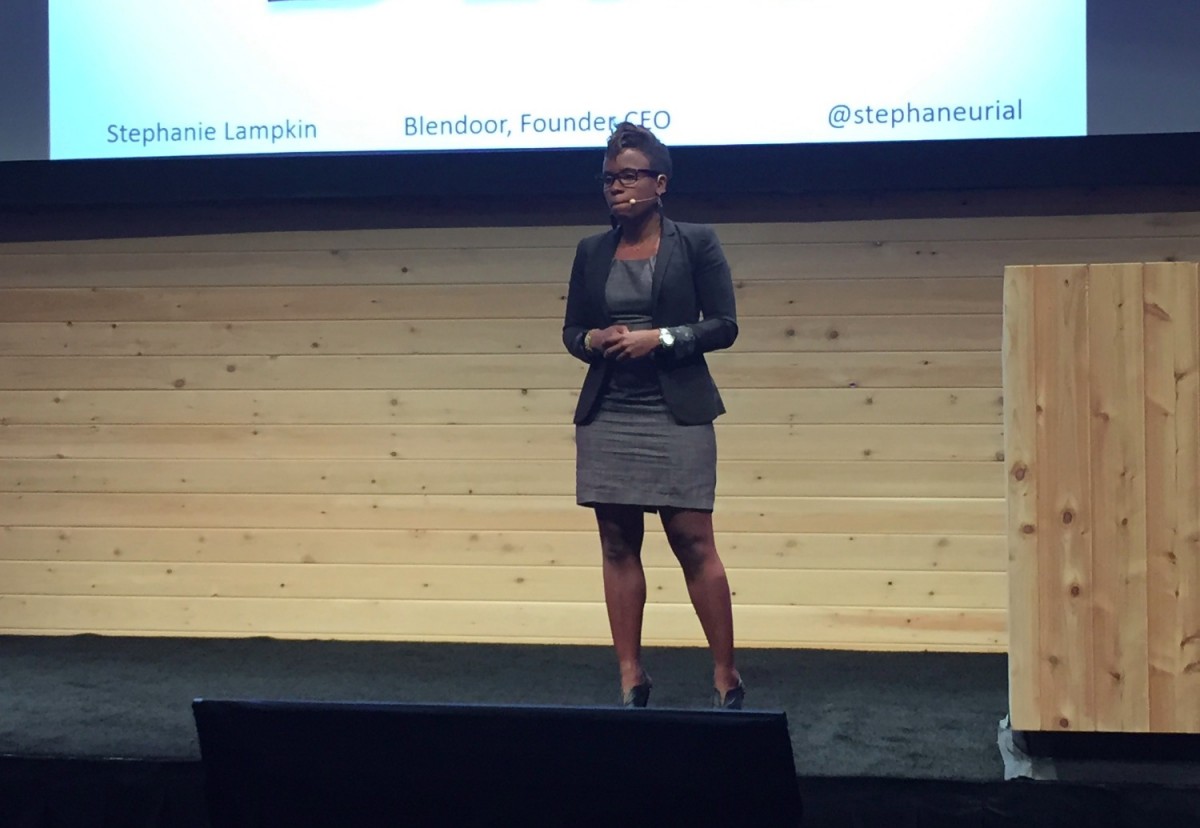
16 May Tech CEO Shares Difficulties of Raising Seed Stage Funding
By Samantha Walravens & Heather Cabot
Blendoor founder and CEO Stephanie Lampkin is learning how tough it is for tech startups to raise money these days. While it’s never easy for seed stage companies to convince investors to bet on them, the slowdown in venture funding makes for an even tougher sell.
Lampkin has been on the road since mid-February, pitching her “blind recruiting” app, which helps companies mitigate unconscious bias and hire more diverse candidates. The app lets job seekers upload resumes, then hides their name and picture so employers don’t take gender and ethnicity into account when making hiring decisions. Her goal is to raise $1.5 million by summer when she’ll launch the full-fledged app and a publicity campaign to go with it.
Blendoor has already raised $100,000 in seed funding from a combination of sources, including angel investors and prize money from pitch competitions. Lampkin was recently selected as one of ten finalists in the prestigious Women Who Tech Startup Challenge, which awards female founders up to $50,000. She was also contacted by the producers of ABC’s ”Shark Tank” to appear on Season 8 of the show.
Lampkin, who has an engineering degree from Stanford, an MBA from MIT and five years at Microsoft MSFT -1.29%, says she’s not seeing any traction from the investors she’s meeting.”
“We’re meeting with a lot of women and people of color — meaning Asian women and black men– who are very vocal about their desire to invest in women and minority-led companies,” she says. “But these meetings aren’t turning into investment.
As the funding climate in the tech industry cools, companies like Blendoor are feeling the pain. According to a recently released report from PricewaterhouseCoopers and the National Venture Capital Association, funding in Silicon Valley startups fell 19.5% in the first quarter of 2016 compared to a year earlier, and is down 10% for seed stage companies in the first quarter 2016, amidst fears over the global economy and the run-up in startups’ valuations.
It’s even tougher for female founders. A study by the Female Founders Fund showed that just 8% of the Bay Area startups that received Series A funding in 2015 were led by women. The numbers are worse for black female founders.
“I’m amazed at how comfortable people are investing in the exact same types of people who are coming up with the exact same types of ideas,” Lampkin says. “It just boggles my mind that there are only 12 black woman in the entire world that have raised a million dollars or more in venture capital and no one sees that as an opportunity to invest and in this underutilized asset.”
According to Rebecca Kaden, a partner at Maveron, a venture capital firm that invests in early-stage, consumer-focused businesses, “Most entrepreneurs can’t raise money in any climate. But it’s harder today, for sure.”
“The bar is higher now,” she explains, “Not in a bubble popping way, but in a correction way– and probably closer to where it needs to be. In Silicon Valley for the past several years, investors were willing to overlook that businesses were losing money per order as long as they could show they had lots and lots of customers because maybe down the line they could get that cost down. Now, investors want to see that the unit economics of the business work, and that they work sooner than later.”
Lampkin is hearing similar words from the investors she’s meeting.
“We’re being told that we’re too early, that we need to show more traction and market validation,” she explains. “But the fact of the matter is that these same firms have invested in companies that are earlier than us — with less revenue, less traction, and way more risks.”
Blendoor has 52 companies in its current pilot, including tech giants like Facebook FB -1.45%, Google GOOGL +0.58%, Intel, Dell, HP, Microsoft, Airbnb and Twitter.


Sorry, the comment form is closed at this time.